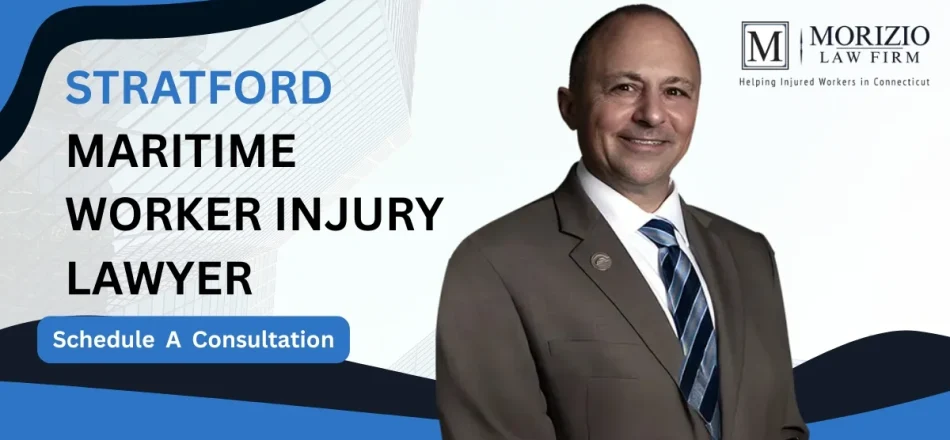Stratford, CT Maritime Worker Injury Lawyer

Maritime Worker Injury Attorney in Stratford, CT
Maritime workers, including offshore workers and oi rig workers, perform some of the most dangerous and deadliest tasks. Yet, when it comes time to help them or their families after a severe injury or fatal accident, the laws can be complicated and confusing. For instance, some longshore and harbor workers may qualify for Connecticut workers’ compensation, while others might instead be covered by the Longshore and Harbor Workers’ Compensation Act (LHWCA).
If you initially file a claim with the wrong entity and only later find out some other law covers you instead, is it too late to transition your claim to the proper agency? Board-Certified Workers’ Compensation Specialist Lawrence Morizio can answer your questions and help you get the coverage and benefits you need after an injury on the job. Learn more about workers’ compensation for maritime & offshore workers below, and contact Morizio Law Firm at 203-386-1433 for immediate assistance.
Morizio Law Firm
To schedule a free consultation regarding any Connecticut workers’ compensation
or personal injury matter
Call Us Today 203-386-1433
The Jones Act
The Jones Act, sometimes called the Merchant Seaman Protection and Relief Act, covers medical bills and also offers wage replacement for longshoremen and seamen injured while working aboard a maritime vessel. Covered vessels include fishing boats, ferries, tour boats, tugs, barges and even cruise ships. If you can prove the employer’s negligence is to blame for the accident or injury, you can recover additional compensation in Stratford, CT, such as damages for pain and suffering, as well.
The Longshore and Harbor Workers’ Compensation Act (LHWCA)
This law covers dockworkers, loaders and others who do not qualify as seamen under the Jones Act but are injured while working on facilities on U.S. navigable waters, such as docks and piers. Shipbuilders, ship-breakers and workers in a host of maritime occupations may be covered by the LHWCA.
Lawrence Morizio is a board-certified workers’ comp specialist who is experienced in determining when LHWCA does and does not apply, and helping workers transition to filing the appropriate type of claim.
Seaworthiness
The seaworthiness doctrine holds vessel owners strictly liable for injuries when their vessel is declared unseaworthy or unsafe for its intended purpose. You need to establish that the ship was dangerous, but you don’t have to prove that the owner was negligent. A vessel could be deemed unseaworthy for any of the following reasons, among others:
- Design defects
- Unreasonably slippery decks
- Deck obstructions
- Understaffed
- Untrained or unsupervised crew
- Missing or defective safety equipment
- Missing or faulty tools and equipment
Death on the High Seas Act
This piece of federal admiralty law may apply to a maritime worker who gets killed while in international waters. The law provides compensation to a widow or widower, child or dependent family member when the worker’s death is attributable to another’s negligence or the vessel’s unseaworthiness.
Workers’ Compensation for Maritime Workers in Connecticut
If you are a maritime or offshore worker injured on the job, or the family member of a worker killed while working on a fishing boat, offshore oil rig, or other maritime occupation, call Morizio Law Firm at 203-386-1433 for help getting medical care and compensation in Stratford, CT.
Stratford Maritime Worker Injury Resources
Offshore Maritime Work: Increasing Risks for Connecticut Workers

